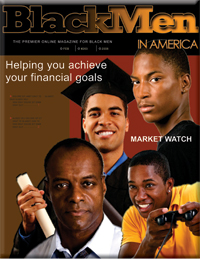By Raynard Jackson
Last year I wrote a column about how President Obama totally disrespected Black America (during Black History Month of all times) and there was no outcry from within our community. You can read that column at:
http://www.facebook.com/?ref=logo#!/note.php?note_id=310879525974
Now, you have the same thing happening again, of course during Black History Month. This time the offender is the illustrious Washington Post (WP) newspaper. They are supposed to be one of the top newspapers in the country, so this makes their offense even more egregious.
Next Wednesday, the WP will be hosting a town hall meeting in Prince George’s County, Maryland. For those who live outside of this area, this is the wealthiest Black county in America.
This is how the Washington Post is advertising the event: “Please join The Washington Post for an informative panel discussion, “Behind the Headlines: A Discussion on Race and the Recession in Metro Washington.” The panel will cover the recession’s impact on local black families and will look at how economic policies in Washington have affected African Americans. The forum will also look at the first of three groundbreaking public opinion polls on issues facing the black community, conducted by The Washington Post, the Kaiser Family Foundation and Harvard University.
Washington Post nationally syndicated personal finance columnist Michelle Singletary will moderate the discussion, and panelists will include Julianne Malveaux, a noted economist and educator; Cecilia Rouse, a member of the White House Council of Economic Advisers; Rep. Emanuel Cleaver, chairman of the Congressional Black Caucus; Michael A. Fletcher, a Washington Post national economics reporter; the Rev. Al Sharpton, president of the National Action Network; and Jeff Johnson, a political commentator on the nationally syndicated “Tom Joyner Morning Show.”
http://www.washingtonpost.com/wp-srv/metro/special/behindtheheadlines.html
So, you might ask, what is the issue I have with the WP? Just as I questioned President Obama’s choice of people to meet with him in the white house last year about the high unemployment rate within the Black community, I have the same thoughts about the WP.
The moderator of the panel is a journalist, followed by a radical leftist economist, another liberal economist, a preacher/politician, a journalist, another preacher/politician, and finally, a political commentator. You have got to be joking!
Prince George’s County is home to some of the most successful Black businessmen in the U.S. and not one has been invited to participate. Five of the seven panelists are known Democrats (with Singletary and Fletcher having no known public political affiliation).
Is there any particular reason why the WP conveniently decided not to have any Black Republicans on the panel? Of course it could not be because they are biased. The Post would never travel down that path, would they? Of course they would and they have!
For all practical purposes, this will be an unpaid political commercial for the Obama reelection campaign. The panelists (with the exception of 2) all are in agreement with most of Obama’s approach to the economy. So, how can you have a serious discussion with people who already agree with each other?
It should not be surprising that 5 of the 7 panelists have ties to the Obama administration (formal or informal). One of the constant criticisms of President Obama is that he has no one around him from the private sector.
None of these panelists have ever created a job, so what is it that they have to say that is relevant?
The last thing the Black community needs is another theoretical discussion. Even socialism works in a ‘theoretical’ world. I can tell you everything that will be said next week and I won’t even be there.
At what point are Blacks going to rise up against this insulting pandering? With all the super successful people in this town, the WP couldn’t find any businessmen to talk about these issues? Why did they not invite any educators, like the dean of Howard University’s Business school, Dr. Barron Harvey?
After this event, then what? Blacks will go there to hear all the usual arguments: racism, Republican budget cuts, Bush created the problems, etc.
So, I challenge the Washington Post to underwrite a town hall meeting that I will put together to deal with these issues in a more serious manner. I will moderate the panel and assemble a group of panelist who will offer real world solutions to these problems.
I don’t expect the Post to respond to my challenge; for to do so would be admitting they made a huge mistake.
In the immortal words of the Godfather of Soul, James Brown, “like a dull knife—just ain’t cutting it; you just talking loud and saying nothing.”
Raynard Jackson is president & CEO of Raynard Jackson & Associates, LLC., a D.C.-public relations/government affairs firm. He is also a contributing editor for ExcellStyle Magazine (www.excellstyle.com) & U.S. Africa Magazine (www.usafricaonline.com).
Book release date: Spring 2011
Raynard Jackson has been named to Talkers Magazine’s “Frontier Fifty.” The “Frontier Fifty” is a selection of Outstanding Talk Media Webcasters.


























